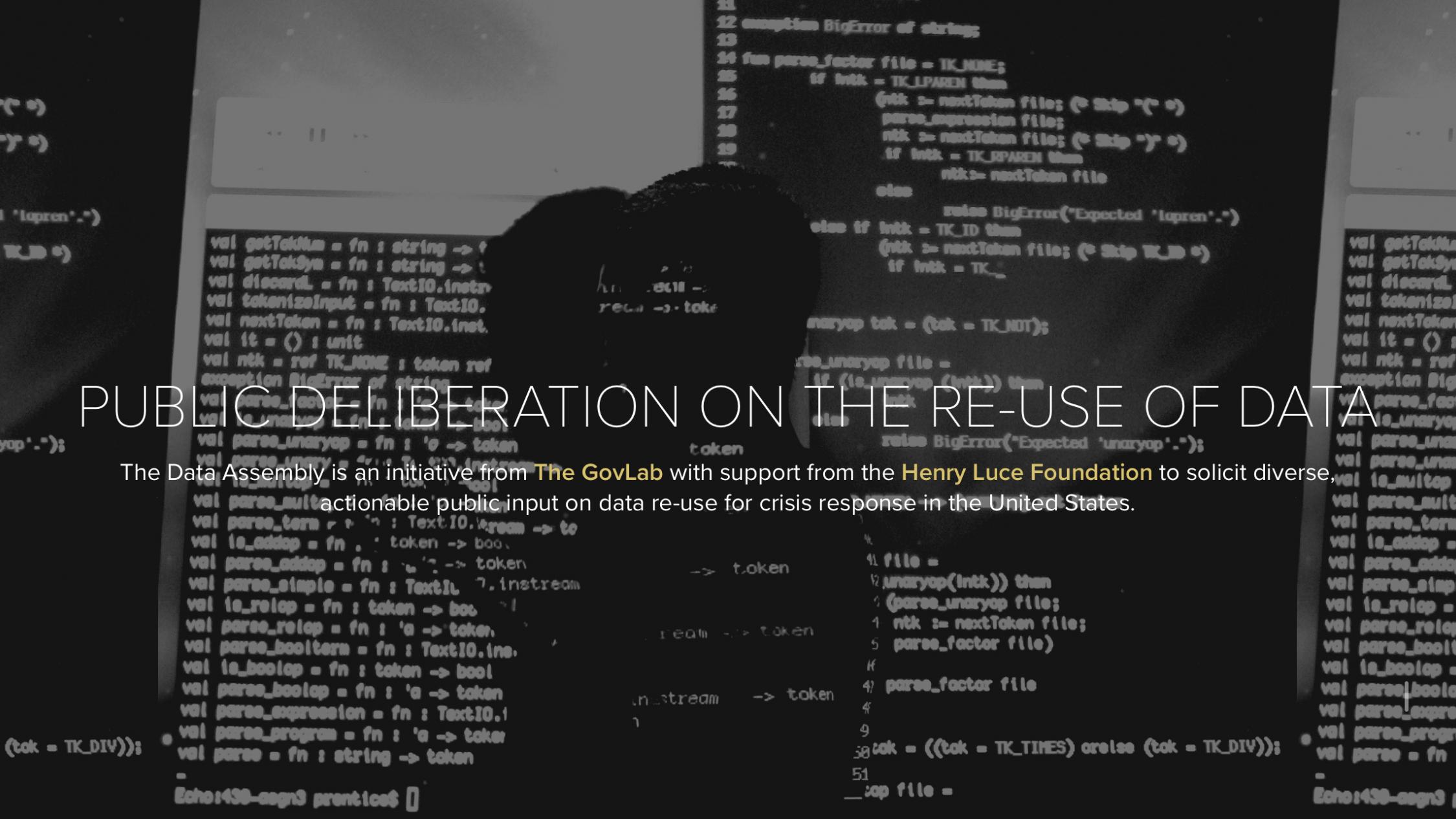The Data Assembly—a new initiative at New York University Tandon School of Engineering’s action research center, The GovLab—will engage in a series of deliberations to identify possible harms and benefits of reusing data in response to COVID-19 and future threats. Through surveys and virtual meetings, the project will collect input from civil rights organizations, data holders, policymakers, and the members of the public before developing a recommendation for responsibly using data to solve public challenges.
“Too often, policy is designed and conducted in a top-down manner, with little citizen input. We believe this more inclusive effort will yield trusted and effective data policies in the fight against COVID-19.”
The Governance Lab (The GovLab), an action research center at New York University Tandon School of Engineering, with the support of the Henry Luce Foundation, announced the creation of The Data Assembly. Beginning in New York City, the effort will explore how communities perceive the risks and benefits of data re-use for COVID-19. Understanding that policymakers often lack information about the concerns of different stakeholders, The Data Assembly’s deliberations will inform the creation of a responsible data re-use framework to guide the use of data and technology at the city and state level to fight COVID-19’s many consequences.
The Data Assembly will hold deliberations with civil rights organizations, key data holders and policymakers, and the public at large. Consultations with these stakeholders will take place through a series of remote engagements, including surveys and an online town hall meeting. This work will allow the project to consider the perspectives of people from different strata of society and how they might exercise some control over the flow of data.
After the completion of these data re-use deliberations, The Data Assembly will create a path forward for using data responsibly to solve public challenges. The first phases of the project will commence in New York City, seeking to engage with city residents and their leaders on data governance issues.





